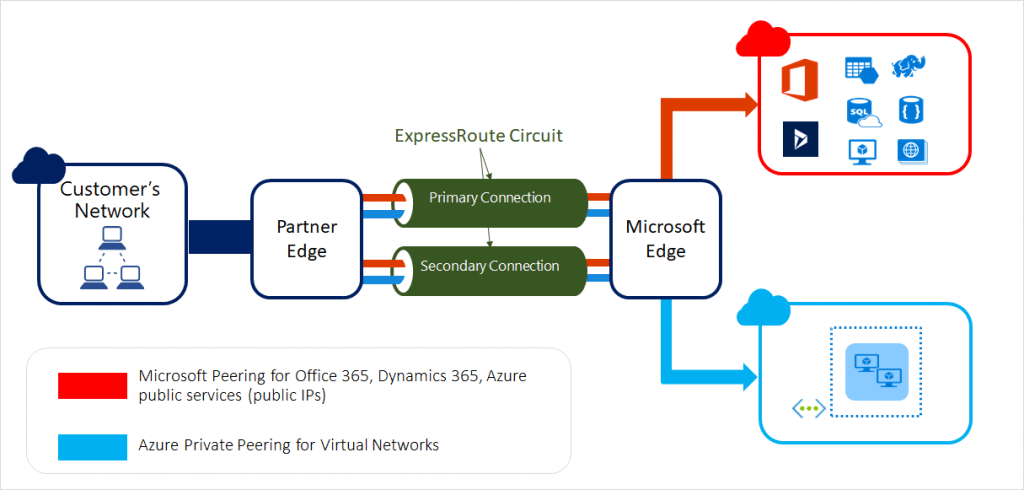What is Express Route?
ExpressRoute, it allows you to expand your in-house networks to azure environments over a special connection with the help of companies such as Equinix, a connectivity provider. With Express Route, it is also possible to connect to cloud environments such as Azure and Microsoft 365.
Connectivity can be from any-to-any (IP VPN) network, point-to-point network, or virtual cross-linking via a connectivity provider in a co-location facility. ExpressRoute connections do not pass over the public internet line, providing secure, high speed and consistent latency with an isolated line drawing to the company network and the azure environment.

You can view the connection architecture in the picture.
Benefits
- Layer 3 connectivity between your on-premises network and the Microsoft Cloud through a connectivity provider.
- Connectivity can be from an any-to-any (IPVPN) network, a point-to-point Ethernet connection, or through a virtual cross-connection via an Ethernet exchange.
- Connectivity to Microsoft cloud services across all regions in the geopolitical region.
- Global connectivity to Microsoft services across all regions with ExpressRoute premium add-on.
- Dynamic routing between your network and Microsoft over industry standard protocols (BGP).
- Built-in redundancy in every peering location for higher reliability.
- At least 99.95% ExpressRoute guarantees custom circuit availability.
( https://azure.microsoft.com/en-us/support/legal/sla/expressroute/v1_3/ )
- QoS support for Skype for Business.
ExpressRoute Connection Models
You can create a connection between your on-premises network and the Microsoft cloud in three different ways:
Cloud Exchange Co-location, Point-to-Point Ethernet Connection and Any-to-Any (IPVPN) Connection.

Co-located at a cloud Exchange
If you are co-located in a cloud-switching facility, virtual cross-links can be made to the cloud through the co-location provider. It can offer layer 2 and layer 3 connections between co-located and cloud infrastructure.
Point-to-Point Ethernet Connection
You can connect in-house data centers / offices to Microsoft Azure via point-to-point Ethernet connections. Point-to-point Ethernet providers can offer layer 2 and managed layer 3 connections between your site and the cloud.
Any-to-Any (IPVPN) Connection
You can integrate your WAN with Microsoft Azure. IPVPN providers offer one to another connection between your branches and data centers. Wan providers usually offer managed layer 3 connectivity.